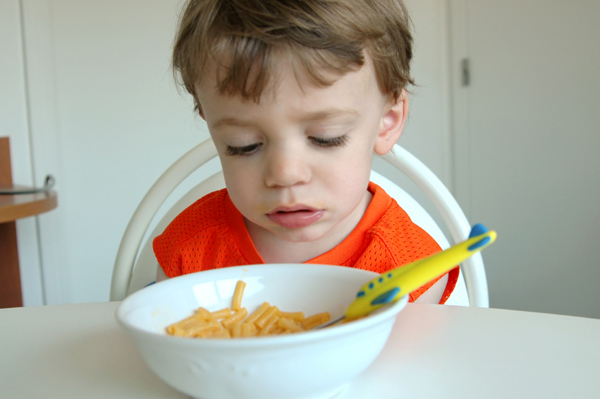An underweight toddler is one of the biggest worries amongst many mothers today. It may be depressing and stressful at the same time, but finding an appropriate way of dealing with it is quite necessary.
The first step is to actually find out if the toddler really is underweight. This is the work of the doctor, precisely a pediatrician; they take the measurements of the toddler’s weight and height. Both of which are used to determine whether the child is underweight or not.
The doctor also takes into account the readings of the toddler’s earlier measurements and determines whether the measurements have changed positively or not. An acute drop in the weight over a short period of time will more often than not prove that the toddler is indeed underweight.
There are a couple of reasons why toddlers may be underweight.
• A child may be naturally slim because the genes inherited from his parents influence the weight. If parents are skinny, then the child is most likely to be the same; this should not be perceived as an underweight case.
• Illness; if a toddler undergoes a certain disease or sickness, he may lose weight and become very skinny. Putting on weight after he has recovered is appropriate, as it will help him regain his lost weight over a certain period of time.
• Worm infections; presence of worms in a toddler’s alimentary canal may also be a great factor contributing to a child being underweight. This is because the worms consume almost all the food, which the child has taken in. De-worming, on a doctor’s prescription, is a good solution to this.
• Digestive problems; your toddler might be undergoing some serious underlying problems in his igestive system, this needs to be checked as soon as possible so that the toddler does not entirely lose appetite, which could be fatal to the child’s development and health.
Giving your toddler a healthy and balanced diet is the most important thing when addressing the toddler’s weight.
What is a healthy and balanced diet?
• High starch content and carbohydrate foods
• Lean protein such as soft meat
• A dose of calcium at least three times a day, which can be obtained from milk, cheese and even beans
• Six portions of juicy fruits and fresh vegetables a day
• Water or healthy fruit juice
Increasing the content of calories in the diet of an underweight child is also very essential. Here are a few ways to achieve this:
• Add margarine and oil to the toddler’s food
• Apply mayonnaise in the toddler’s vegetables
• Make sure that the dairy products that you give to your toddler are full-fat rather than the low-fat usually consumed
• Add grated cheese to most of the toddler’s foods.
Studying your toddler’s eating habits or patterns is also quite helpful when trying to ensure that your child eats a lot more.
Find out when the toddler wants to eat most and maximize this period. Most toddlers are hungry after being very active such as moving around and playing. It is at this time that a mother should incorporate as much fat content as possible in the toddler’s meal as he will eat comfortably.
Most of the times, toddlers are not comfortable with the places where they eat such as the dining table or kitchen. It is, therefore, mandatory for you to find out where the toddler is comfortable with eating. Be it outside or in front of the television, knowing this will definitely increase the amount of food that the toddler consumes. When at work or unavailable, do not leave your child unattended to; having a well informed house cleaner or baby-sitter is highly recommended.
As much as an underweight toddler may be depressing, do not put too much pressure on the child to eat. This may have even worse effects than you probably imagined. The toddler might be even more repulsed when it comes to eating.
Do not give your toddler a bottle of milk every time. If they get used to this, they may get addicted and find solid foods less fulfilling. In addition, giving toddlers high fiber foods such as bread and rice is highly discouraged. This fills the toddler’s tummies, which are quite small as compared to those of adults. It therefore leaves little space for the rest of the nutritious food.
Having extra vitamins, which are necessary for the toddler’s age bracket, is also very essential. There should be high content of vitamins A, D and C. Vitamins tend to increase the amount of iron in a toddler’s body. High content of iron largely increases the toddler’s appetite for other foods. Do not supplement your toddler with iron directly though, as it may have dire consequences. Excess iron in the system may bring about constipation.
It is advisable to consult a dietician on what is perfect for an underweight child. Before listening to other mothers, it is important to consult a doctor because what worked for their children may not necessarily work for your toddler. Specialized doctors give accurate advice on how to improve the state of your underweight child and hardly do their recommendations ever fail, if followed with the utmost dedication.
Lastly, having underweight children is not unusual. Therefore, you do not need to be worried or get stressed about it because it can be dealt with by necessary action after good and suitable consultation process.
